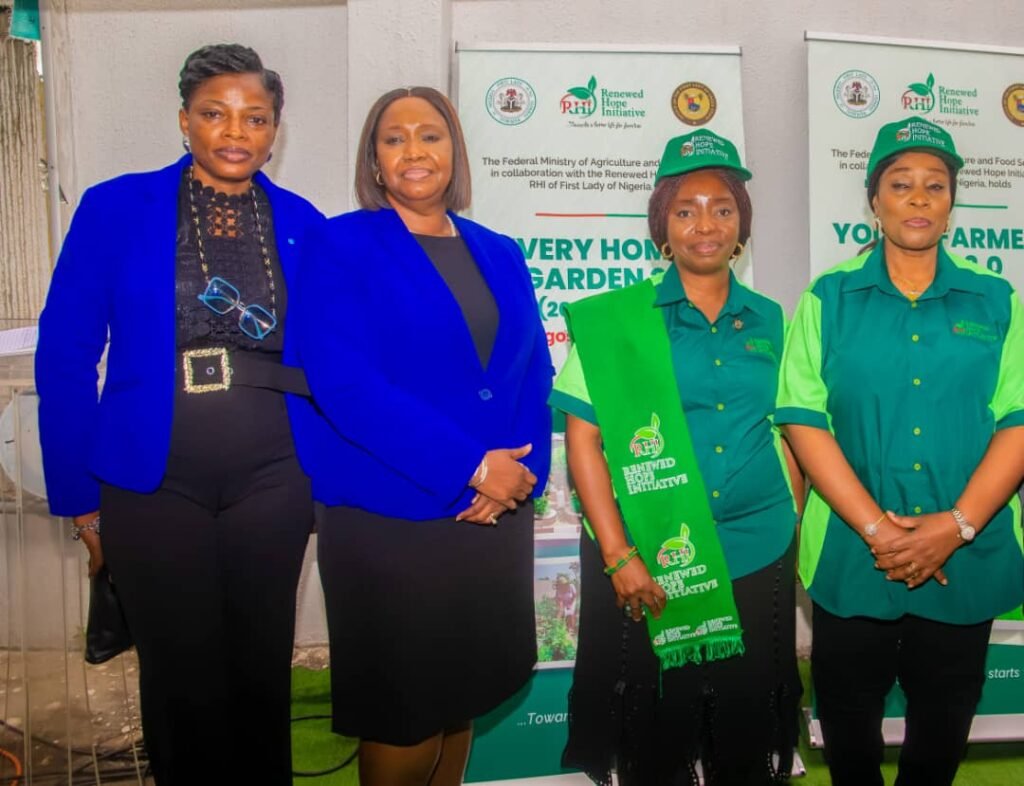L-R: Ayoyinka Thompson, business team lead, Eko Zone, Keystone Bank; Helen Maiyegun, directorate head, Lagos and West, Keystone Bank; Ibijoke Sanwo-Olu, First Lady of Lagos State; and Oluremi Hamzat, wife of deputy governor of Lagos State, at the Renewed Hope Agricultural Support Programme held recently in Lagos.
In a significant push for national development and inclusive economic growth, Keystone Bank Nigeria Limited has partnered with Claudiana Ibijoke Sanwo-Olu, First Lady of Lagos State, on the Renewed Hope Initiative – Agricultural Support Programme (RHI-ASP).
The RHI-ASP under the leadership of Oluremi Tinubu, First Lady of Nigeria, aims to boost local food production through capacity building, provision of agricultural inputs, and financial support to women and youth. It is a key component of the broader Renewed Hope Agenda focused on food security, economic self-reliance, and inclusive national development.
In a statement on Wednesday, Keystone Bank confirmed its role as a strategic partner in the initiative, leveraging its Corporate Social Responsibility (CSR) framework to support the program’s objectives.
“The partnership reflects our enduring commitment to empowerment, inclusion, innovation, and nation-building core values that have defined Keystone Bank’s development driven approach,” the bank stated.
Commenting on the partnership, Hassan Imam, managing director& CEO of Keystone Bank, said: “This timely and strategic collaboration aligns with our mission as a socially responsible institution. We commend the First Ladies of the Federation and Lagos State for championing this initiative and creating a platform where public-private synergy can truly serve the people.”
Also speaking, Helen Maiyegun, directorate head, Lagos and West, noted: “We are honoured to support the Renewed Hope Agricultural Support Programme. This initiative resonates with our CSR strategy and our belief in empowering women and youth to lead Nigeria’s agricultural transformation.”
Keystone Bank’s involvement will cover areas including financial inclusion, agricultural development, and empowerment training, reinforcing its role as a progressive institution committed to the intersection of finance, social impact, and national development.


